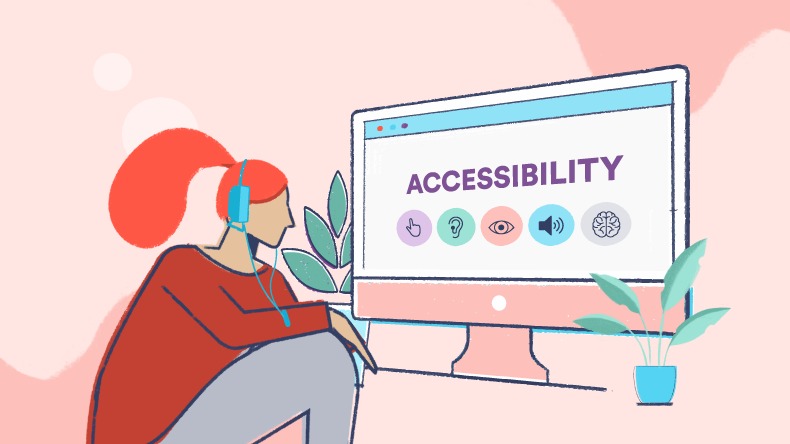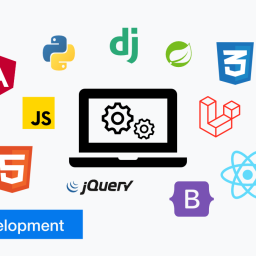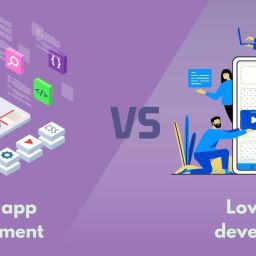
In our increasingly digital world, the importance of inclusive design cannot be overstated. Accessibility is not just a checkbox; it’s a fundamental aspect of creating products and services that can be used and enjoyed by all individuals, regardless of their abilities or disabilities. LeMeniz, a pioneering force in the software development industry, has taken up the mantle of inclusive design with unwavering commitment. In this blog post, we’ll explore the concept of inclusive design and how LeMeniz is actively championing accessibility through its software solutions.
Understanding Inclusive Design:
Inclusive design, also known as universal design, is an approach that seeks to create products, environments, and experiences that are accessible and usable by as many people as possible. It’s a philosophy that goes beyond compliance with regulations; it’s about fostering a culture of empathy, where design is driven by the goal of making the world more inclusive.
LeMeniz’s Dedication to Inclusive Design:
- Accessible Websites and Applications:
- LeMeniz is committed to developing websites and applications that adhere to the highest accessibility standards, ensuring that people with disabilities can navigate and interact with digital content seamlessly.
- User-Centric Design:
- Inclusive design starts with understanding the diverse needs of users. LeMeniz conducts thorough user research to design with empathy, considering various user scenarios and personas.
- Compatibility with Assistive Technologies:
- LeMeniz’s software solutions are purposefully engineered to work seamlessly with assistive technologies such as screen readers, voice recognition software, and alternative input devices.
- Text Alternatives and Captions:
- They emphasize the importance of providing text alternatives for non-text content, like images and videos, making digital content accessible to those who rely on screen readers. Additionally, they advocate for the use of captions for multimedia content.
- Simplified and Consistent Navigation:
- LeMeniz designs user interfaces with straightforward and consistent navigation. This benefits users with cognitive or learning disabilities and enhances the overall user experience.
- Multi-Device Compatibility:
- Recognizing that people access digital content through various devices, LeMeniz ensures that their software is responsive and compatible with different screen sizes and input methods.
- Regular Testing and Feedback Loops:
- LeMeniz conducts frequent accessibility testing and actively seeks feedback from users, including those with disabilities. This iterative approach allows them to identify and rectify accessibility issues promptly.
The Importance of Inclusive Design:
- Legal Compliance: In many regions, legal requirements and regulations mandate that businesses adhere to accessibility guidelines. Complying with these regulations is both ethical and legally necessary.
- Expanded User Base: By making your software accessible, you expand your user base to include individuals with disabilities, a significant and often underserved market.
- Enhanced User Experience: Inclusive design often leads to a better user experience for everyone. Clear and intuitive design benefits not only those with disabilities but all users.
- Positive Brand Reputation: Demonstrating a commitment to inclusivity enhances your brand’s reputation and showcases social responsibility.
- Future-Proofing: As the population ages, the need for accessible design will only increase. By embracing inclusive design now, you future-proof your software.
The LeMeniz Advantage:
LeMeniz’s approach to inclusive design stands out for:
- Expertise: They maintain a dedicated team of experts well-versed in inclusive design principles and accessibility standards.
- Innovation: LeMeniz goes beyond mere compliance, actively seeking creative solutions to make digital experiences more accessible and enjoyable for all.
- User-Centered Approach: They actively involve users with disabilities in the design and testing processes, ensuring their software addresses real-world needs.
- Commitment to Continuous Improvement: LeMeniz acknowledges that accessibility is an ongoing journey and remains dedicated to enhancing their software based on evolving needs and standards.
Conclusion:
Inclusive design isn’t just a responsibility; it’s a strategy for creating better products and experiences. LeMeniz’s proactive approach to inclusive design not only ensures accessibility for all but also reflects a commitment to building a more inclusive and equitable digital world. Their software solutions are not just functional; they’re empathetic, user-centric, and welcoming to every individual, regardless of their abilities. With LeMeniz, accessibility isn’t a checkbox; it’s a core principle that drives their software development process.
















